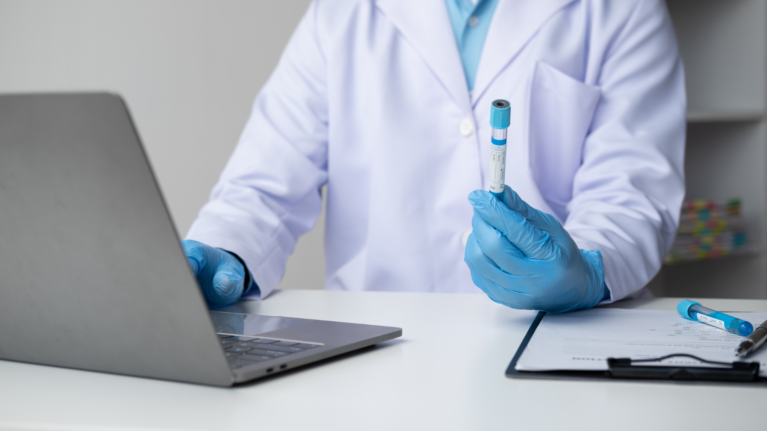

The essence of a successful and well-functioning quality control (QC) lab lies in the name itself. Achieving, maintaining, and continuously improving quality is the ultimate goal in ensuring patient safety.
So, how can regulated labs maintain these high-quality standards and successful processes?
Many factors – such as those defined in ISO 15189:2012 or by the Clinical & Laboratory Standards Institute (CLSI) – play a role in QC lab operations. This blog focuses on managing sample and inventory processes, data, documents, and records and how digital software platforms play an essential role.
QC labs handle and process many samples, ranging from raw materials to in-process samples, drug products, and finished products. As these samples are analyzed, large amounts of data are generated, including QC test results, calibration reports, and more.
Properly managing the sample chain of custody and associated specifications is critical for consistently high quality. And, not surprisingly, it comes with challenges.
As lab personnel processes samples and runs release testing of materials and samples, the data must be managed to ensure all information is accurate, accessible to qualified personnel, secure and traceable.
Let’s go through some common difficulties with the samples, inventory, data, documentation, and records management process.
Every step in the sample collection, handling, and testing process must be carefully controlled and tracked by QC personnel. In addition, QC lab testing methods and the overall process must be verified and validated. Inventory management is similar: the procedures for raw materials, reagents, equipment ordering, storage, and expiration must be controlled and tracked.
Many QC labs accommodate large volumes of samples daily. A significant challenge is processing, tracking, maintaining accurate records, and ensuring all samples are correctly handled.
Inventory management is another challenge in QC labs, as keeping track of supplies, equipment, and chemicals can be time-consuming and complex. Guaranteeing the required materials are in stock at the right time and stored in a way that protects integrity can be a constant difficulty. If they aren’t correctly managed, there is a risk of incorrect or expired materials being used, which can impact the quality of results. Furthermore, ineffective tracking of usage and ordering trends can lead to inefficient spending.
Data accuracy, reliability, and timeliness are essential for QC. Accomplishing this takes rigorous attention to the evolving regulatory requirements for data management, such as electronic signatures, 21 CFR Part 11 compliance, and data backup and recovery processes.
With a combination of manual testing procedures and automated instruments, several challenges related to data management emerge. This includes assuring the security of sensitive information and avoiding data loss due to system failures or human error. Another challenge is integrating data from different sources and formats into a centralized database that supports downstream data analysis and reporting in a robust, flexible way.
On top of data management, lab standard operating procedures (SOPs), protocols, and test records must be securely managed. This requires proper storage and access controls to prevent unauthorized access, tampering, or data breaches. In addition, consistent adherence to established procedures and practical training and personnel monitoring is essential for maintaining the integrity of the testing process, demonstrating compliance with regulations, and supporting continuous improvement in QC labs.
Digital lab platforms (DLPs) ameliorate the sample tracking and data management woes discussed above. They proved a standardized, comprehensive approach to most QC processes, reducing the risk of errors, providing a fully traceable account of lab operations, improving overall efficiency, and ensuring regulatory compliance.
Here’s how:
Digital platforms help solve typical sample tracking and data management challenges in a QC environment.
Book a personal demo today to see how eLabNext’s DLP fits into your QC lab!

 By Ethan Sagin
By Ethan Sagin
Learn how eLabNext utilizes impact-driven metrics and assessments to optimize digital operations, enhance customer satisfaction, and achieve lab digitization goals effectively.
Read more
 By Zareh Zurabyan
By Zareh Zurabyan
Discover the transformative power of a Sample and Digital Strategy, and follow our 5 easy steps to prep for a seamless ELN/LIMS transition.
Read more
 By Chris Austin
By Chris Austin
Discover the ongoing debate between paper and ELNs in research institutions, weighing the simplicity and tangibility of paper against the efficiency and collaboration-enhancing features of ELNs.
Read more
Schedule a Personal Demo for friendly expert guidance and a free lab workflow assessment.